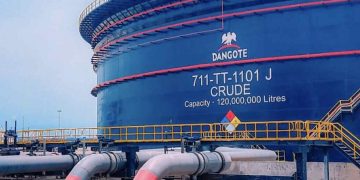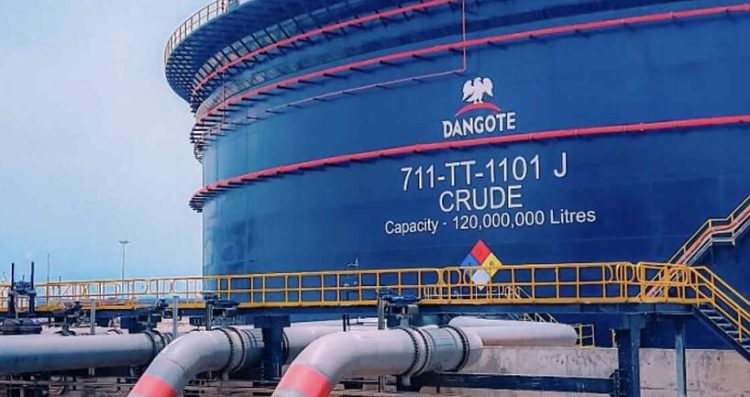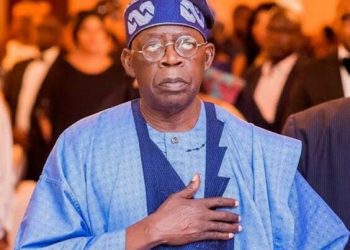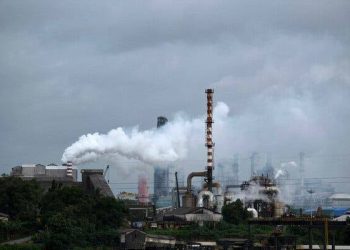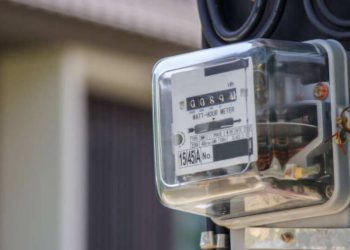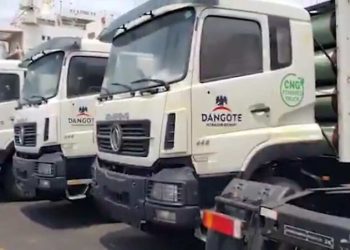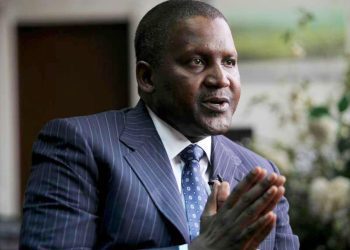Aliko Dangote, President and CEO of Dangote Industries Limited, has disclosed that the company’s refinery imports between 9 to 10 million barrels of crude oil each month from the United States and other countries, a move driven by the high costs and challenges of sourcing crude domestically in Nigeria.
Speaking during the West African Refined Fuel Conference in Abuja, organized by the Nigerian Midstream and Downstream Petroleum Regulatory Authority (NMDPRA) in collaboration with S&P Global Commodity Insights, Dangote shed light on the logistical and commercial hurdles facing Africa’s largest refinery project.
Nigeria’s Crude Sold at Premiums by Middlemen
Dangote noted that instead of purchasing crude directly from local producers, the refinery has been compelled to negotiate with international traders — many of whom purchase Nigerian crude and resell it at significant markups.
“As we speak today, we buy between 9 to 10 million barrels of crude monthly from the U.S. and elsewhere,” he revealed.
Despite Nigeria’s output of approximately 2 million barrels per day, local access to crude at competitive prices has remained a challenge, pushing the Dangote Refinery to source externally.
Africa’s $90 Billion Refining Deficit
Dangote lamented the continent’s dependency on imported fuel products, citing that over 120 million tonnes of refined petroleum are brought into Africa annually, costing the region around $90 billion.
“We’re exporting crude but importing poverty,” he said. “This situation represents a huge lost economic opportunity. The $90 billion import bill is larger than the GDP of most African nations.”
He warned that Africa had become a dumping ground for substandard and often harmful petroleum products; fuel types banned in Europe and North America but still imported across African countries.
The Dangote Refinery: An Industrial Marvel
Describing the scale of the Dangote Refinery, Aliko Dangote called the project one of the most complex and capital-intensive industrial undertakings in Africa’s history.
“We didn’t just build a refinery; we built an entire industrial ecosystem,” he said.
The project involved the development of 2,735 hectares of land (seven times the size of Victoria Island in Lagos), 70% of which was swamp that had to be stabilized with 65 million cubic metres of sand. The construction also included:
- Over 250,000 foundation piles
- Massive networks of piping, electrical wiring, and cabling
- A dedicated seaport, since existing Nigerian ports couldn’t handle the scale of imports
- The creation of the world’s largest granite quarry, capable of producing 10 million tonnes of granite annually
- At peak construction, 67,000 workers, of which 50,000 were Nigerians, were engaged on-site
The COVID-19 pandemic, Dangote added, caused a two-year delay, introducing further complexity and cost.
High Costs Due to Logistics and Regulation
Despite the refinery’s operational success, several financial and infrastructural burdens persist. Dangote pointed out the extreme rise in the exchange rate from N156/$ at the project’s inception to over N1,600/$ upon its completion as a major commercial strain.
Other hurdles include:
- Exorbitant port and regulatory fees, accounting for up to 40% of total freight costs
- Domestic shipping costs, which are often higher than importing from foreign ports like Lomé
- Double-charging on petroleum product cargoes within Nigeria — unlike in regional competitors, where only discharge fees apply
Dangote lamented, “Refiners in India, who import crude from farther away, enjoy lower freight costs than we do here in West Africa.”
Call for Regional Fuel Standards and Policy Reform
He also criticised the lack of harmonized fuel standards across African countries, which makes it difficult for locally refined products to be exported within the continent.
“Fuel refined for Nigeria cannot be sold in Ghana, Togo, or Cameroon, despite similar vehicular use. This fragmented approach only benefits international middlemen who profit from arbitrage,” Dangote stated.
Citing the influx of discounted, low-quality fuel blended from Russian crude under global price cap schemes, Dangote called on African governments to adopt protective policies akin to those in the EU, U.S., and Canada, which prioritise and protect domestic refining industries.
